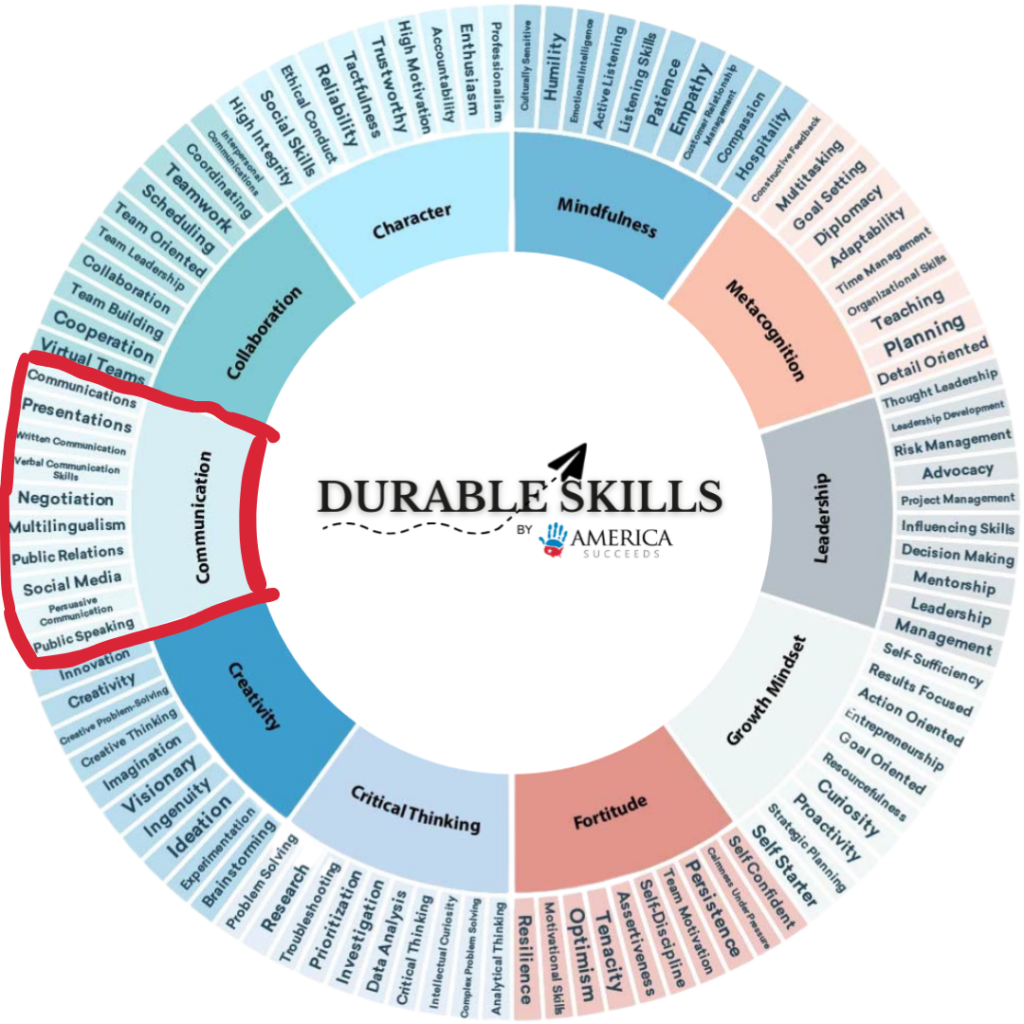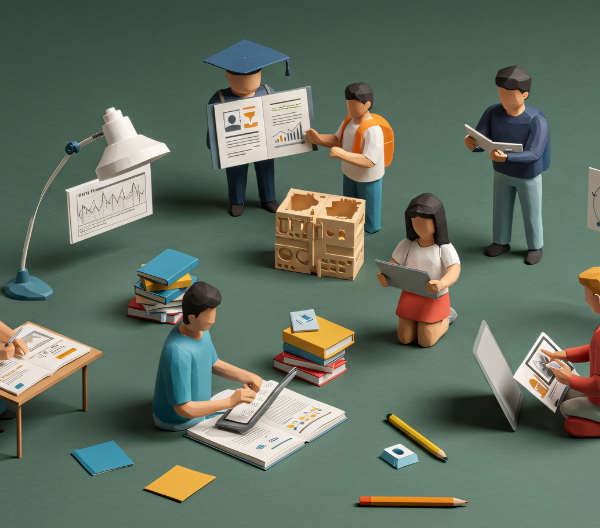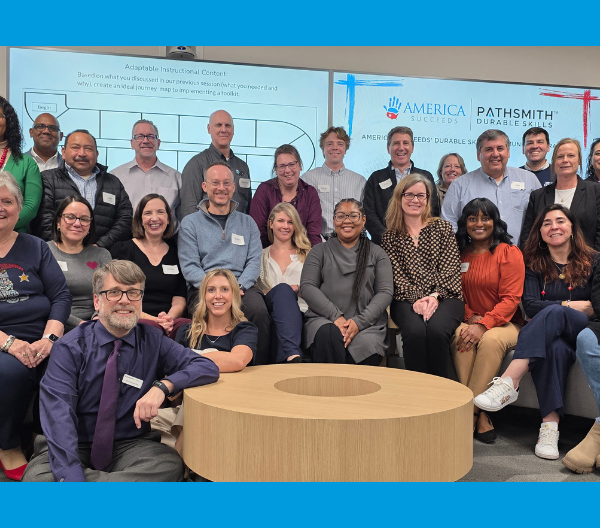Written by Kelli Rapplean, Project Manager at America Succeeds
Two years ago, I had just finished presenting a leadership topic to my team of colleagues at a management retreat. The room was filled with nine other managers and three senior managers. During one of the breaks, a senior manager approached me and said, “Kelli, you have a real gift for presenting and facilitating. Where did you develop that skill?”

I paused to think. While I had been told often that I was strong at presenting, and I had been doing it for over a decade, I hadn’t really reflected on its origins. I graciously accepted the compliment and told him that I loved the question because it made me think deeply about my past.
Reflecting on my experiences, I realized that my communication skills likely began to develop at a very young age. In college, I was part of the Outreach Team as a Career Specialist in the Career Center, which provided valuable experience. However, it was my early childhood experiences that laid the foundation. My parents always encouraged me to order my own food at restaurants, and in elementary school, I had to memorize and present monologues for an elective Speech credit course.
What’s really important to share about this story is that this skill set has been a huge part of my ability to grow in my career. My durable skills have been a direct link to my ability to obtain higher-wage roles.
Upon reflecting on this experience, I have two main takeaways:
1. Develop Durable Skills from an Early Age
If you’re a parent, creating life experiences that require critical thinking, problem-solving, communication, and collaboration is crucial. Even simple interactions, such as afternoons with siblings, are ripe with opportunities to develop these skills. As a parent of two, I’m constantly working on supporting the development of my 5-year-olds “collaboration” with her 10-month-old brother.
2. Encourage Reflection on Skill Development
One of the most effective ways to develop these skills in all youth, especially those facing significant system barriers, is to build their language and awareness of durable skills. Educators, both in and out of school, should discuss what durable skills are, how to develop them, and why they are important. This can be done through various activities and discussions that highlight the importance of these skills in real-world scenarios.
When I taught preschool, one of the main concepts I wanted my students to learn was that they could always grow and improve—a growth mindset that embraces challenges and persists through setbacks. In the fall, our classroom wall would read, “We’re growing our brains as big as pumpkins!” I want all youth in America to know that they can continuously learn and develop, whether they are 4 years old or 25. It’s never too early or too late to practice and develop new durable skills.
By focusing on the development of durable skills from an early age, and encouraging reflection on these skills, we can empower the next generation to thrive in a rapidly changing world.
At America Succeeds, we aim to showcase the value and tangible impact that durable skills have on personal and professional growth. We invite you to share your own story of how a durable skill has shaped your journey—your experiences could inspire and empower others in their pursuit of success.




